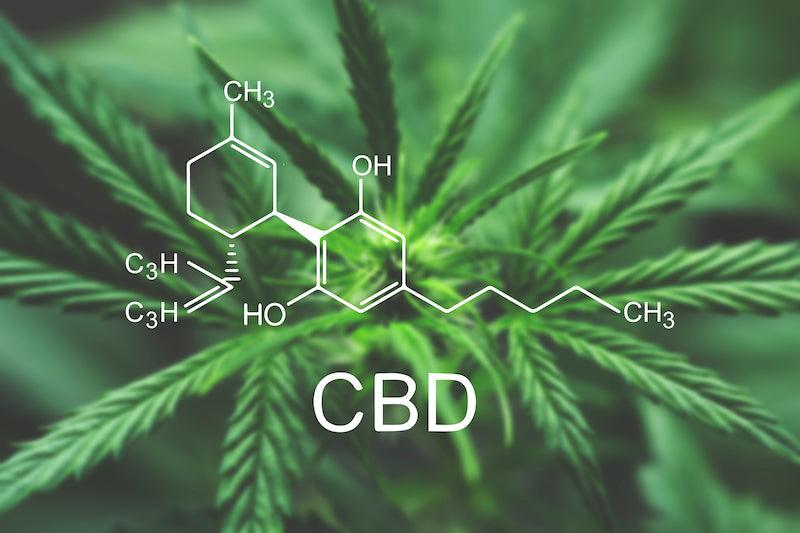What is CBD?

Over the past few years the hemp plant has emerged as a super food ingredient and people are understandably curious about the therapeutic properties of hemp derived cannabinoids such as CBD. The 2018 Farm Bill that legalized industrial hemp under USDA regulations has given people across the United States access to hemp derived products. The fresh social embrace of hemp and hemp derivatives has led to a boom of CBD products. One can find CBD products in grocery stores, coffee shops, bars, and even hair salons. While CBD seems to be all the rage, many are unaware of exactly what CBD is and if the benefits match the hype.
What is CBD?
Cannabidiol (CBD) is one of the many phytocannabinoids of the cannabis plant. It is argued that CBD is the most therapeutic cannabinoid because it provides numerous health benefits. CBD works with the body's endocannabinoid system in ways that are similar to its more infamous relative, THC. The best part is that unlike THC, it doesn’t have any psychoactive properties, meaning it doesn’t produce a feeling of being “high". Under the 2018 Farm Bill all cannabis derived products must contain no more than .3 percent THC to maintain the definition of “hemp”. Hemp derived CBD products are sold outside of dispensaries and will have little to no THC. The therapeutic benefits and lack of side effects make hemp derived CBD products a great option for those looking to relieve certain conditions or just incorporate CBD into a healthy lifestyle.
What are the benefits of CBD?
The momentum of hemp derived products has given way for research into the many benefits of CBD. This cannabinoid is believed by many to relieve pain, ease insomnia, anxiety, depression, and some neurological disorders. Studies suggest that CBD could relieve chronic pain and inflammation by interfering with the way pain signals are carried by the peripheral nervous system. Though it has not yet been approved by the FDA as a treatment for anxiety disorders, research has shown that it could be beneficial by how it interacts with the endocannabinoid, anandamide which is connected to feelings of “bliss” by enhancing anandamide signaling in the brain. Research also suggests that CBD is a powerful antioxidant that could prevent neurotoxicity and may actually act as a neuroprotectant. While these preliminary findings are promising, the research that has been done is limited and more studies are necessary to determine the full breadth of theraputic and nutritional possibilities.
How Does CBD Work?
The endocannabinoid system consists of CB1 and CB2 receptors. CB1 receptors are located in the nervous and respiratory systems as well as the liver. CB2 receptors are found in the immune and digestive systems. The easiest way to think of cannabinoid receptors are like “locks and keys” with the receptors being the locks and the cannabinoids being the keys. The “high” feeling associated with cannabis has to do with THC binding to CB1 receptors. Both endocannabinoids and phytocannabinoids bind to our receptors, but in different ways. The way and location in which they attach has to do with how they interact with the rest of the body. CBD binds to different sites than THC, which is why it doesn’t produce any psychoactive effects. When CBD binds to the receptors in our endocannabinoid system the whole body seems to benefit.









